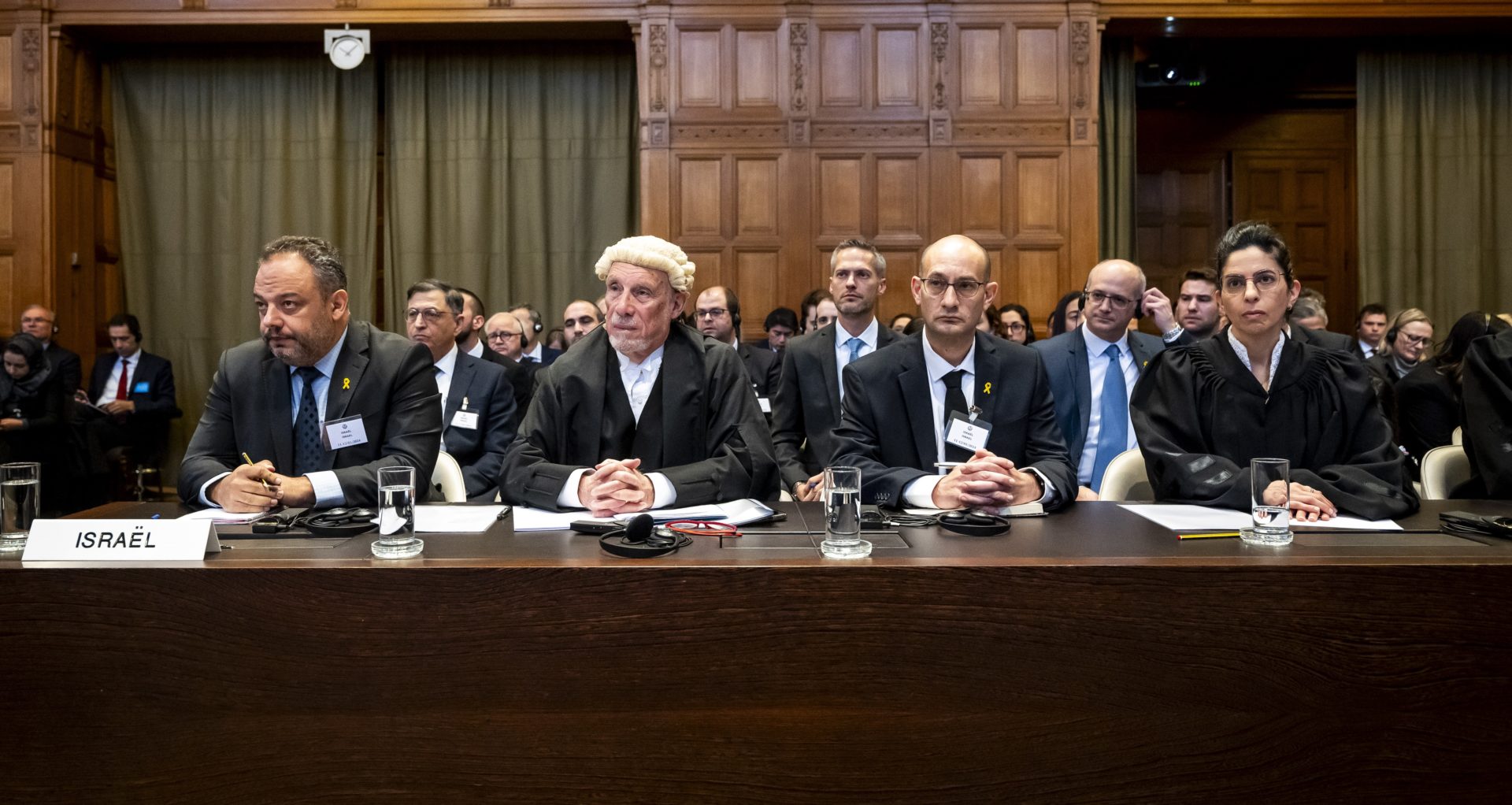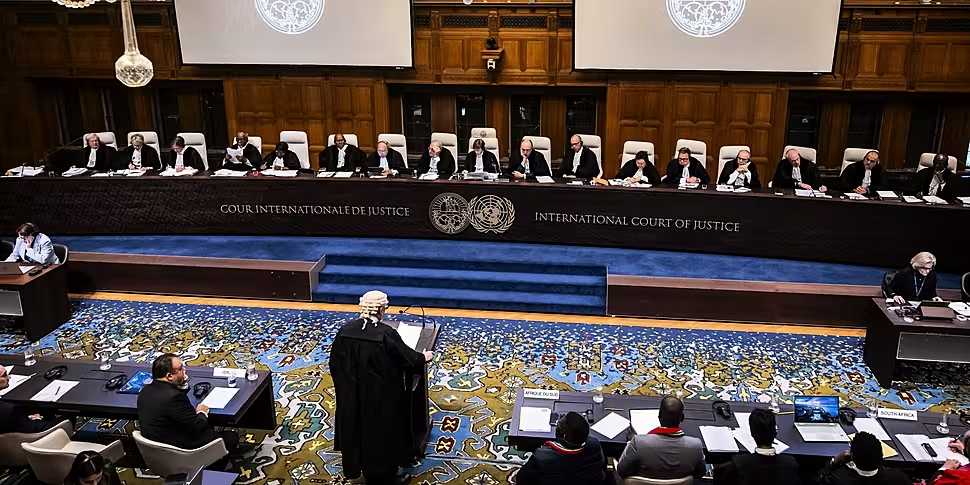The International Court of Justice is expected to give an initial ruling later on whether it will grant emergency measures to stop the war in Gaza.
South Africa is pressing for an order to halt all military operations there as it accuses Israeli forces of carrying out genocide.
South Africa has argued that Israel is breaching the United Nations Convention on Genocide by "killing Palestinians in Gaza, causing them serious bodily and mental harm, and inflicting on them conditions of life calculated to bring about their physical destruction".
Israel has described the lawsuit taken in The Hague as a "despicable and contemptuous exploitation" of the court.
An 84-page court document set out South Africa's case, which states that Israel's "acts… in the wake of the attacks on 7 October 2023… are genocidal in character".
It claims this is because they are "intended to bring about the destruction of a substantial part of the Palestinian national, racial and ethnical group, that being the part of the Palestinian group in the Gaza Strip".
 Members of Israel's legal team at the International Court of Justice in The Hague, 11/12-1-24. Image: International Court of Justice
Members of Israel's legal team at the International Court of Justice in The Hague, 11/12-1-24. Image: International Court of JusticeSouth Africa said Israel is "failing to prevent genocide and is committing genocide" in its war with Hamas.
In the court documents, it also acknowledged "direct targeting of Israeli civilians and other nationals and hostage-taking by Hamas" on and after October 7th, which may breach international law.
According to the Hamas-run Palestinian health ministry, 25,000 Palestinians have been killed in Israeli attacks since the conflict started.
Nearly all of the 2.3 million population of Gaza have been displaced by heavy bombing.
What happens next?
The ICJ has the power to issue "provisional measures" - legally-binding court orders - that would last for the duration of the case.
South Africa wants it to use them to "immediately suspend military operations in and against Gaza".
Although they are legally binding, they are not always adhered to.
For example, a joint case against Russia's invasion of Ukraine in 2022 resulted in provisional measures for Moscow to withdraw troops, but these were ignored by the Kremlin.
Like others before it, the case is likely to last for years, as proving "intent" to commit genocidal acts is a difficult and lengthy process.
Irish lawyer Blinne Ní Ghrálaigh, who is advising South Africa's legal team, told the court "huge swathes" of Gaza were being wiped from the map.
"Experts warn that deaths from starvation and disease risk significantly outstripping deaths from bombings," she said earlier this month.
She added that the situation has led to the need for a new acronym for Palestinian children: WCNSF - wounded child, no surviving family.
'Genocide'
The term genocide was adopted by the UN soon after it was established in 1945, with a specific convention adopted on it in 1948.
According to the charter, genocide "means any of the following acts committed with intent to destroy, in whole or in part, a national, ethnical, racial or religious group".
Examples include killing members of a group, deliberately inflicting on the group conditions of life calculated to bring about its physical destruction in whole or in part and forcibly transferring children of the group to another group.
Since its inception there have only been three proven cases of genocide under the UN definition: the Khmer Rouge killing of Cambodian minority groups in the 1970s; the Srebrenica Massacre of Muslims in Bosnia in 1995; and the killing of Tutsis in Rwanda in 1994.
There have been numerous calls for Ireland to support the South African case.
Trócaire CEO Caoimhe de Barra has said Ireland has a 'legal obligation' to prevent genocide in Gaza.
She said Ireland's call for a ceasefire is "no longer enough".
Taoiseach Leo Varadkar has said he would feel "uncomfortable" about using the word ‘genocide’ to describe Israel's actions in Gaza.
Additional reporting: IRN









